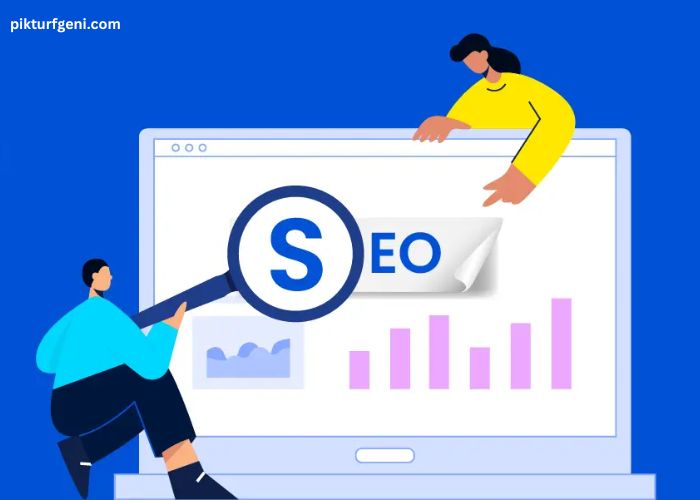Key Takeaways
- Discover why white label SEO services are becoming essential for agencies.
- Learn how white label solutions can streamline processes and enhance offerings.
- Understand the potential issues and how to mitigate them.
- Gain insights on selecting the right white label partner for your needs.
In today’s digital marketing arena, adapting swiftly to changes and client demands is crucial for agencies. One highly effective strategy involves the use of Vazoola white label SEO services. These services allow agencies to expand their capabilities without the heavy investment in in-house resources. By integrating white label solutions, businesses can focus on building stronger client relationships while providing high-quality SEO service, a critical need in the current digital ecosystem.
The consistent rise in demand for search engine optimization indicates the critical role it plays in enhancing business visibility online. As companies strive to stay competitive, having robust SEO capabilities becomes non-negotiable. White label services step up as a remarkable solution, offering agencies a structured way to increase their service offering efficiently while maintaining their brand’s integrity.
The Rise of White Label SEO Services
The demand for search engine optimization is soaring, largely driven by the increasing need for businesses to secure a robust online presence. According to an article in Business Insider, the digital marketing landscape is undergoing rapid changes, necessitating businesses to adapt their strategies accordingly. White label SEO services have emerged as a viable option for agencies to meet these demands effectively. By providing an all-encompassing set of solutions, white label services empower agencies to deliver high-quality SEO services under their branding, hence maintaining consistency in client offerings.
How White Label SEO Works
White label SEO operates on the foundation of collaboration. It’s a process where agencies outsource their SEO needs to specialized providers who fulfill these services under the agency’s brand umbrella. This involves:
- Subcontracting SEO Tasks: Agencies can access a wealth of expertise and skills offered by seasoned SEO professionals who remain behind the scenes. These experts handle complex SEO tasks with precision, allowing the agency’s branding to take center stage in client communications.
- Streamlined Service Offering: This collaboration ensures that agencies can provide a comprehensive range of SEO services without having to manage additional resources internally. It’s a blend of leveraging external expertise while keeping the brand’s promise to clients intact.
Benefits of White Label Solutions for Agencies
Embracing white label solutions offers myriad benefits crucial for agency growth and efficiency. These include:
- Scalability: One of the major advantages is the ability to scale service offerings seamlessly. Agencies can cater to more clients without substantial investment in new technology or personnel, thus maximizing their operational capacity.
- Cost-Effectiveness: By bypassing the need to build an in-house SEO team, agencies alleviate the significant costs associated with recruitment, training, and retention. This financial liberation allows for resources to be channeled into other strategic areas of business growth.
- Focus on Core Services: Agencies can dedicate their main focus to their areas of expertise while the complexities of SEO are expertly handled by their white label partners. This ensures that they retain their core competencies without compromising on service quality.
Potential Challenges and Mitigation Strategies
Despite the numerous benefits, agencies can face challenges when incorporating white label SEO services:
- Quality Assurance: Ensuring that the outsourced work aligns with the agency’s standards is crucial. Agencies can manage this by implementing rigorous evaluation processes and setting clear performance metrics to ensure consistency and quality in service delivery.
- Communication Gaps: Miscommunications can ensue if expectations and roles are not clearly outlined. Establishing direct and open lines of communication and regular updates can mitigate misunderstandings, ensuring synchronization between the agency and the service provider.
Criteria for Choosing the Right Partner
Identifying the right partner is fundamental to the success of using white label services. Key considerations include:
- Reputation and Experience: Evaluating the partner’s track record through testimonials, case studies, and overall industry standing is essential. A partner with proven expertise can deliver more reliable and effective services.
- Diverse Service Offering: Ensuring the partner offers a broad spectrum of SEO services matching the agency’s needs is crucial. This includes keyword research, on-site optimization, and content marketing.
- Support and Communication: Strong communicative capabilities and customer support are vital for smooth ongoing collaboration. Responsive support teams lend assurance and facilitate better problem-solving.
Real-Life Success Stories
Numerous agencies have successfully transformed their offerings by integrating white label SEO into their portfolios. By understanding the needs of their clients and leveraging the power of effective partners, agencies have streamlined processes and significantly improved client satisfaction and results, showcasing the immense potential of strategic partnerships.
Trends Shaping the Future of SEO
The SEO landscape is dynamic, with technological advancements and changing consumer behaviors steering new developments. Emerging trends such as artificial intelligence in analytics and the growing emphasis on voice search are reshaping digital marketing strategies. As reported in a recent Forbes report, staying agile in adopting such trends is imperative for agencies looking to maintain a competitive edge in the swiftly changing digital environment.
FAQs About White Label SEO
What is white label SEO?
White label SEO involves outsourcing SEO services to third-party providers who execute these tasks under an agency’s branding, allowing agencies to expand capabilities without directly managing the processes.
How does it benefit an agency?
By offering scalable, cost-effective solutions, agencies can enhance their service offerings without the burden of developing new in-house expertise, thereby improving client relations and operational efficiency.
What are the risks?
Potential challenges include quality control and communication issues, both of which can be effectively managed through clear protocols and robust partner relationships.
